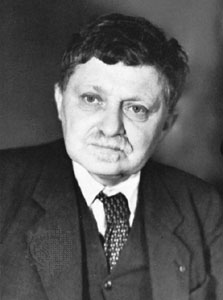A Quote by Friedrich Nietzsche
Inaction, letting be, neither creating nor destroying--that is my evil. And also the knower as one without desire.
Related Quotes
Where there is Love and Wisdom, there is neither Fear nor Ignorance.
Where there is Patience and Humility, there is neither Anger nor Annoyance.
Where there is Poverty and Joy, there is neither Cupidity nor Avarice.
Where there is Peace and Contemplation, there is neither Care nor Restlessness.
Where there is the Fear of God to guard the dwelling, there no enemy can enter.
Where there is Mercy and Prudence, there is neither Excess nor Harshness.
It is due to neither impotence nor ignorance on God’s part that evils occur in the world, but it is owing to the order of his wisdom and to the greatness of his goodness, whence come the many and divers grades of goodness in things, many of which would be lacking were he to allow no evil to exist. Thus there would be no good of patience without the evil of persecution, nor the good of the preservation of its life in a lion, without the evil of the destruction of the animals on which it lives.
The gods can either take away evil from the world and will not, or, being willing to do so, cannot; or they neither can nor will, or lastly, they are both able and willing. If they have the will to remove evil and cannot, then they are not omnipotent. If they can, but will not, than they are not benevolent. If they are neither able nor willing, then they are neither omnipotent nor benevolent. Lastly, if they are both able and willing to annihilate evil, how does it exist?
Fundamentally, however, there is neither good nor evil; this is all based on human concepts. In the universe there exists neither good nor evil, because everything has been created in accordance with immutable laws. the divine principles are reflected in these laws, and only through knowing these laws will we be able to get close to the divine.
Reason, in a strict sense, as meaning the judgment of truth and falsehood, can never, of itself, be any motive to the will, and can have no influence but so far as it touches some passion or affection. Abstract relations of ideas are the object of curiosity, not of volition. And matters of fact, where they are neither good nor evil, where they neither excite desire nor aversion, are totally indifferent, and whether known or unknown, whether mistaken or rightly apprehended, cannot be regarded as any motive to action.
Finally you come to a point where you almost know it all. You are very wise. You are very pure... except for the fact that you may well have gotten caught in the last trap... the desire to know it all and still be you, "the knower." This is an impossibility. For all of the finite knowledge does not add up to the infinite. In order to take the final step, the knower must go. That is, you can only BE it all, but you can't know it all. The goal is non-dualistic - as long as there is a "knower" and "known" you are in dualism.








































